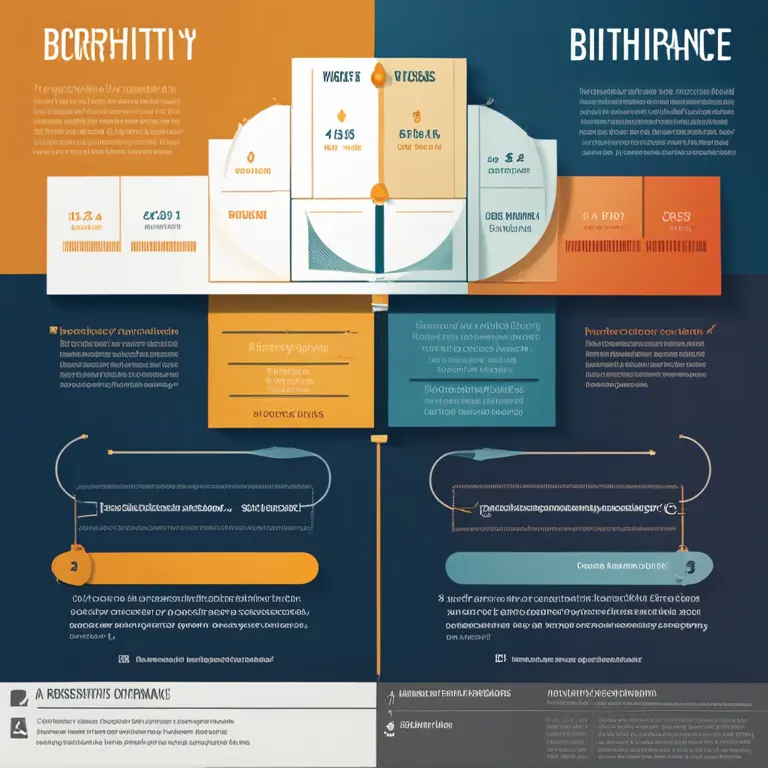
The Secrets of Biorhythm Compatibility
An insightful look into biorhythm compatibility, revealing how synchronizing biological cycles can enrich personal relationships.
article by Adrian Wallace
Introduction to Biorhythms
In the realm of personal well-being, the concept of biorhythms has long fascinated those seeking to understand the natural physiological patterns that influence our daily lives. Biorhythms are intrinsic cycles that regulate various physiological and psychological functions, said to affect our physical, emotional, and intellectual states. Originating from the scientific observations in the early 20th century, these cycles purportedly start at birth and oscillate in set patterns throughout life. Today, we leverage this concept to analyze how our personal cycles align or conflict with those around us, especially in the context of compatibility with partners, friends, or colleagues.

The Three Primary Cycles
The theory of biorhythms centers around three primary cycles: the Physical (23 days), the Emotional (28 days), and the Intellectual (33 days). Each of these cycles is thought to go through high, low, and critical phases. The high phase is marked by heightened performance and positivity, the low phase by reduced energy and potential challenges, and the critical phase is a transitional period typically associated with instability or unpredictability. By mapping out these cycles, individuals can forecast their periods of strength and vulnerability, and potentially harmonize their activities and interactions accordingly.

Biorhythm Compatibility Overview
Biorhythm compatibility, a newer facet of this field, examines the interaction between the biorhythmic cycles of two individuals. The premise is simple: relationships can be enhanced or challenged depending on the synchronicity of partners’ biorhythms. For instance, if both individuals are in the high phase of their emotional cycles simultaneously, they may find a deeper emotional connection. Conversely, if one is in a low phase while the other is at a high point, they might experience misunderstandings or friction.

Assessing Compatibility
To assess biorhythm compatibility, one would first calculate the individual biorhythm cycles using birth dates. Specialized software and online platforms, now more advanced and user-friendly in 2024 and beyond, offer detailed personal biorhythm charts. Once both partners’ cycles are mapped out, the analysis looks for patterns of harmony and discord. Particular attention is paid to the cycles’ intersecting high points (indicative of compatibility and mutual reinforcement) or opposing phases (potential for dissonance).

Practical Applications in Relationships
Gauging biorhythm compatibility has practical applications. Couples can plan significant interactions or decisions based on harmonious cycles, perhaps scheduling important discussions or events during times of predicted emotional or intellectual alignment. Similarly, understanding impending discordant periods can boost tolerance and foster communication, helping partners navigate through less synchronized phases with patience and empathy.
Limitations and Considerations
While intriguing, the science behind biorhythm compatibility isn't universally accepted, with critics questioning its empirical support. However, many supporters argue that it offers a unique perspective on relationship dynamics. Regardless of the scientific debate, users are encouraged to consider biorhythmic insights as one of many tools for fostering self-awareness and understanding in relationships, not as a deterministic guide.
Conclusion
The pursuit of understanding biorhythm compatibility taps into a deeper yearning to decode the ebb and flow of human relationships. As with any attempt to quantify and influence the mysteries of human interaction, it is essential to approach biorhythm compatibility with both open-minded curiosity and healthy skepticism. Whether firmly rooted in science or not, the practice encourages reflection on the natural rhythms that drive us and highlights the importance of timing and empathy in our relationships.
Published: 1/25/2024
Modified: 1/25/2024
More predictions
Come back here soon to learn more about yourself and your future


The Basis of Biorhythms: An Insight into Biological Cycles
Delve into the concept of biorhythms, the belief in rhythmic biological processes that purportedly influence human physiology and behavior.


The Rhythms Within: Biorhythm Horoscope Insights
Tap into the cosmic wisdom of biorhythms to understand your emotional, physical, and intellectual cycles for enhanced well-being and foresight.


The Human Biorhythm Cycle: Patterns of Life's Ebb & Flow
Delve into the human biorhythm cycle, a compelling concept in the holistic understanding of our physiological and emotional patterns over time.